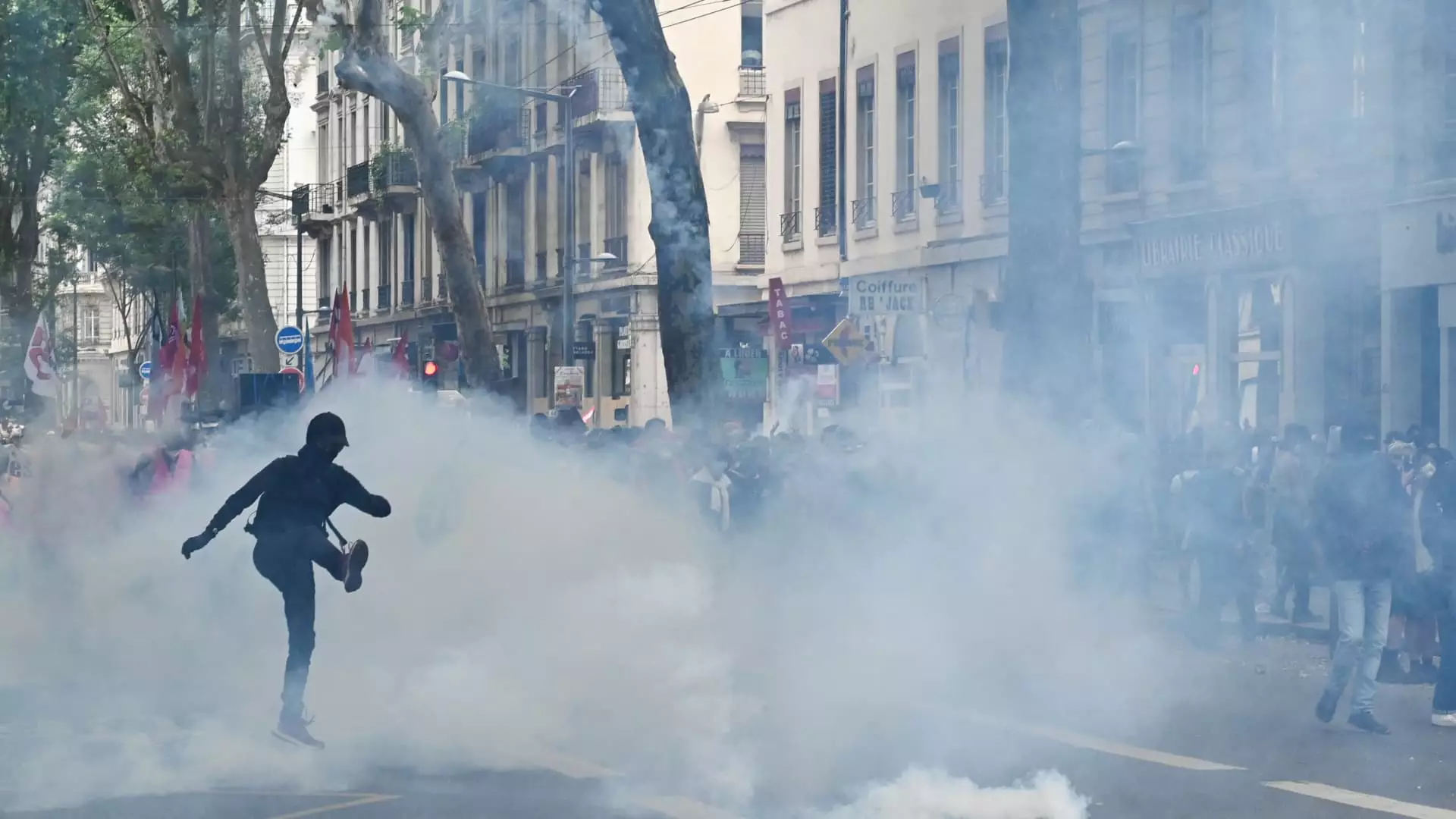The recent violent protests in France against the far-right National Rally, or RN, have set the tone for what promises to be a contentious election campaign. With record gains in the European Parliament, party figurehead Marine Le Pen and RN President Jordan Bardella are at the center of rising nationalist sentiment that is igniting tensions across the country. Hundreds of thousands of demonstrators took to the streets, with estimates ranging from 250,000 to 640,000 protesters participating in marches in Paris and other cities. The unrest, marked by clashes with police and deployment of tear gas, underscores the deep divisions within French society.
As the election campaign officially begins, the National Rally is leading in the polls with 35% support, followed by the left-wing New Popular Front at 26% and President Emmanuel Macron’s Renaissance party at 18%. The prospect of a far-right majority in France has raised concerns of “unchartered territory” and “major downside risks,” according to Mujtaba Rahman, Eurasia Group’s managing director for Europe. However, Rahman also suggests that a “messy” hung parliament is more likely, as part of Macron’s strategic move to undermine RN’s credibility ahead of the 2027 presidential elections.
The uncertainty surrounding the upcoming election has made a significant impact on the financial markets, with the French CAC 40 experiencing a 6.2% drop, its worst weekly loss since March 2022. While French stocks saw a minor recovery on Monday, analysts warn that the volatility is likely to persist in the lead-up to the election. Goldman Sachs’ senior European strategist Sharon Bell noted that the sell-off may have been premature and emphasized that certain segments of the market, such as small caps and domestic French names, are more vulnerable.
Despite the brief rebound in French stocks, the lingering uncertainty surrounding the election poses a challenge for investors and analysts alike. Societe Generale highlighted the need for clarity on the fiscal and spending plans of the different parties, suggesting that the uncertainty will persist until at least the second round of the election on July 7th. Similarly, Deutsche Bank underscored the ongoing nature of the uncertainty, indicating that market volatility is likely to endure beyond the election cycle.
The far-right National Rally’s influence on France’s election campaign has sparked widespread protests, heightened political tensions, and market turmoil. As the country navigates through a period of uncertainty and division, the outcome of the election remains uncertain, with potential implications for the future direction of French politics and society. Investors and political observers alike will be closely monitoring developments in the coming weeks to assess the impact of these events on the broader European landscape.


Leave a Reply